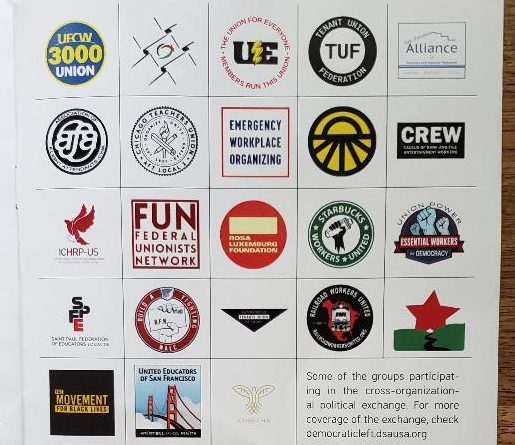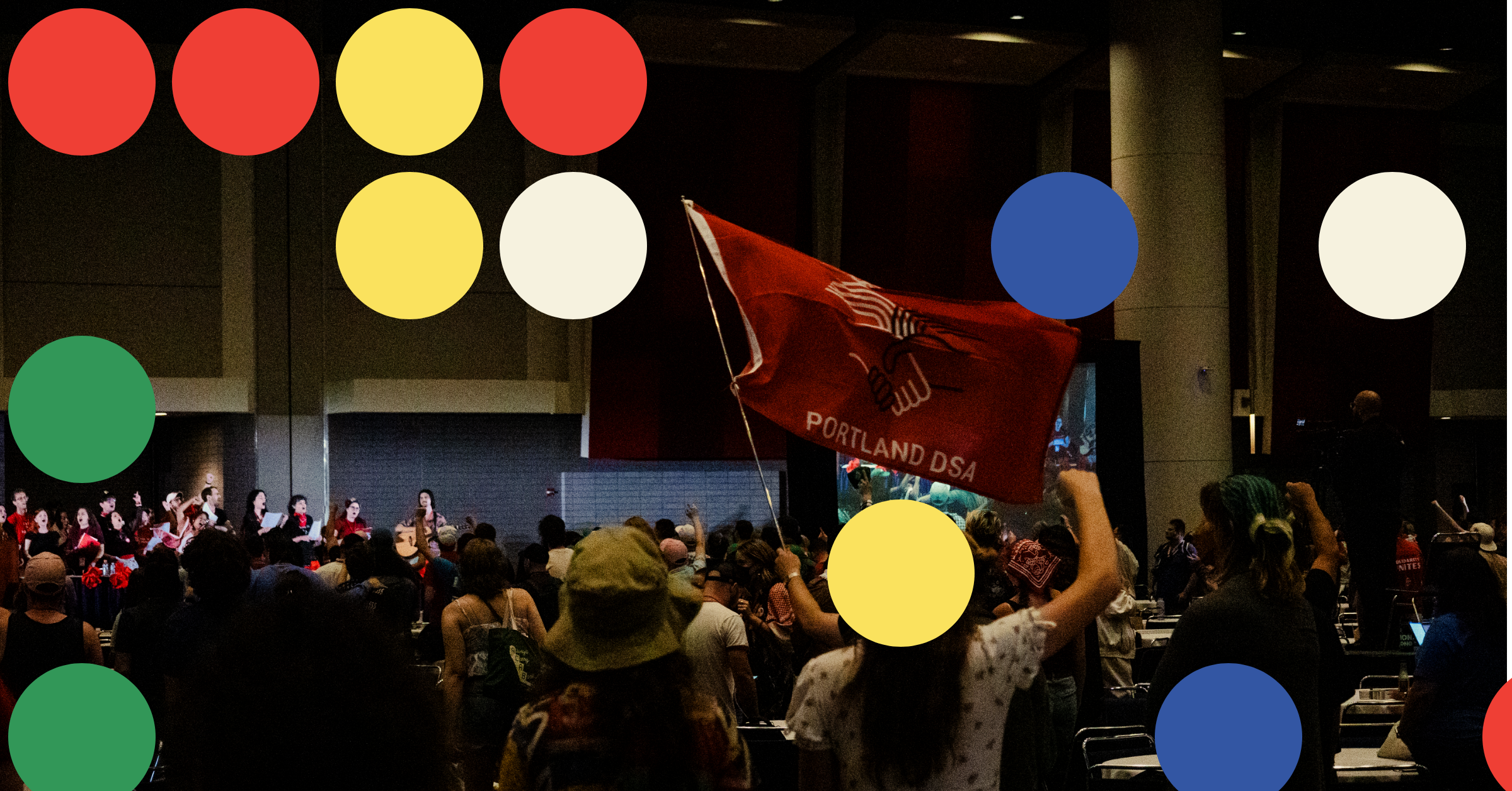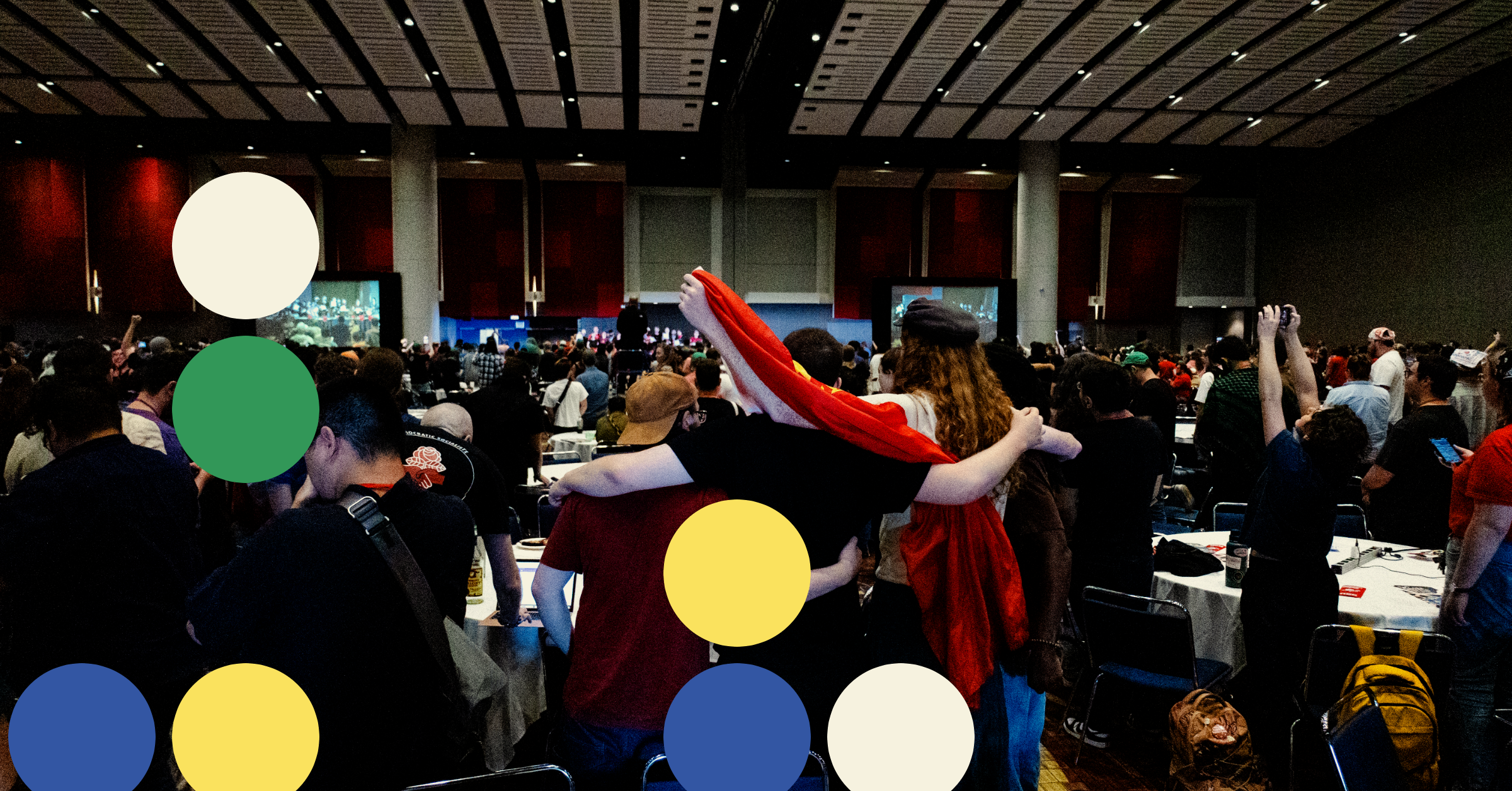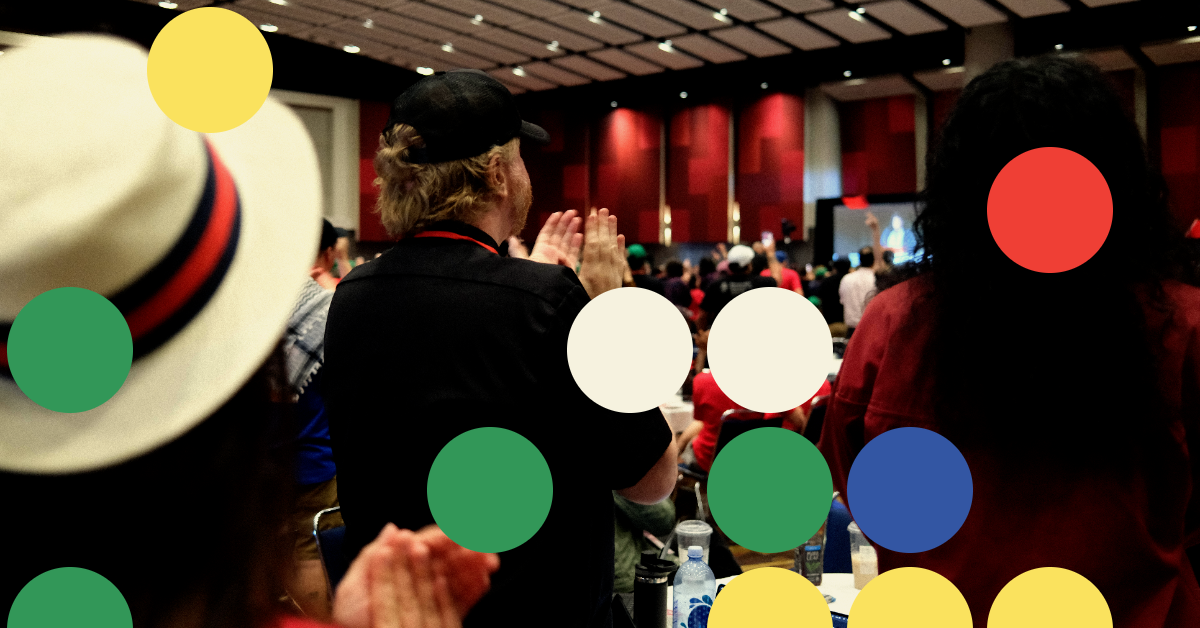The DSA national Convention this month for the first time included a Cross-Organizational Political Exchange: more than 40 speakers from unions, social movements, and socialist parties across the globe came to confer with DSA. The Convention website explained that the idea was “to pave the way for party-building and a May Day 2028 coalition.”
This exchange was critical to asserting DSA as a pre-party formation, as 1,300 delegates from across the country gathered in Chicago to debate the direction of our organization — six weeks after Zohran Mamdani’s victory in New York City and a subsequent membership surge. Amid the contentious resolutions being debated, this non-voting part of the Convention served not only as a space for comradely exchange but as a chance to see the enormous potential of international solidarity for building a socialist party.
Addressing the crowd and explaining the process of planning the exchange, Convention co-chair Laura Wadlin said, “There [wasn’t] a spreadsheet of cool unions — but now there is.”
Now that the cool union spreadsheet exists, it can serve as a blueprint for building a real coalition – the kind that is often invoked rhetorically but rarely put into practice. We engaged with other groups and navigated how we orient toward the world. According to Wadlin, the two main goals in organizing the exchange were to make the Convention less inwardly focused and to feel like it has stakes, and to create a next step for May Day 2028. “There were so many other benefits of the process,” Wadlin said, “that we ended up gaining more goals. I now see it as expanding our horizons for what’s possible in the working class.”
Delegates also had a chance to speak, interspersed with the guests, as determined by a lottery.
The fast-paced cross-organizational exchange showcased our shared excitement for two massive projects: a new electoral formation independent from the two major parties, and UAW President Shawn Fain’s call for strikes and working-class political action on May Day 2028.
Union reform caucuses like Higher Education Labor United (HELU), Build a Fighting NALC (letter carriers), Railroad Workers United (RWU), and Caucus of Rank-and-File Electrical Workers (CREW) all called for a new party (a call that RWU first made in 2012!). HELU noted they have a policy platform on higher education, a key battleground under Trump, ready for a new party to adopt.
The Palestinian Youth Movement urged DSA to commit to an anti-war strategy that could “be bold on Palestine because it is the winning thing to do.” CREW tied the call for party-building back to its roots, noting that a workers party must “come from an organic and independent working class culture of self-activity and militancy. It stands to reason that there can be no labor party that does not have deep, organic ties to labor. Get a job in strategic industries and callous your hands alongside us.”
Organizing toward May Day 2028 gives us a concrete opportunity to build rank-and-file class consciousness, cross-union coordination, popular support, and renewed ties between the socialist movement and the labor movement.
FROM ACROSS THE GLOBE
Political organizations from across the globe were moved to travel great distances to discuss May Day 2028 with DSA. Representatives from La France Insoumise and the Workers Party of Belgium (PTB-PVDA) both noted their excitement to see this activity developing in the U.S.
They were joined by members of the Workers Party (PT) and the Socialism and Liberty Party (PSOL), both from Brazil, Movimiento Victoria Ciudadana of Puerto Rico, the Movement for Democratic Socialism of Japan, and the National Regeneration Movement (Morena) of Mexico, whose powerful speech ended with, “We [Mexican immigrants] will be deported if we go out on strike and you cannot allow that.”
The Amazon Labor Union urged DSA to “focus on political education to help workers connect issues in the workplace to issues outside the workplace.” The Los Angeles Tenants Union cautioned the group to “plan for before and after mass action,” and the Debt Collective, based in Washington, D.C., asked the crowd, “What would it look like if while workers withheld their labor, debtors withheld their payments?”
Not only were our guests from these unions, social movements, and socialist parties invited to speak; they also mingled with DSA members all weekend, met at the hotel bar, joined our parties, and made connections that will continue to guide DSA toward our goals.
The preliminary discussions that began at the cross-organizational exchange show there is broad support for an independent working class party, but more discussion and debate are needed to determine what our next decade of organizing looks like. The exchange gathered many key organizers for our massive May Day 2028 project, but two-minute speeches from dozens of organizations is just the beginning — much more collaboration is needed.
The resolution “Fighting Back in the Class War: Preparing for May Day 2028” committed DSA to several specific next steps. Over the next two years, DSA will anchor a May Day Convention in concert with major unions and other organizations that have taken up May Day 2028 as a priority, to collectively establish a plan and a set of demands for May Day 2028. DSA will encourage members to get jobs in strategic workplaces, industries, and unions, and DSA members in unions will organize to line up their contracts to expire on or around May Day 2028. DSA chapters will develop materials for agitation and political education around the need to build class power ahead of May Day 2028, and hold political education events for workers more broadly.
We hope that all DSA delegates returned to their chapters invigorated by this exchange and with a laser focus on our shared goals. “If we don’t recognize the obligation we have to act in the world, we could miss our potential,” Laura Wadlin remarked. “DSA is not just an online subculture. We’re a political player on an international stage, and we need to match that.”
[First published in the Detroit Socialist.]




